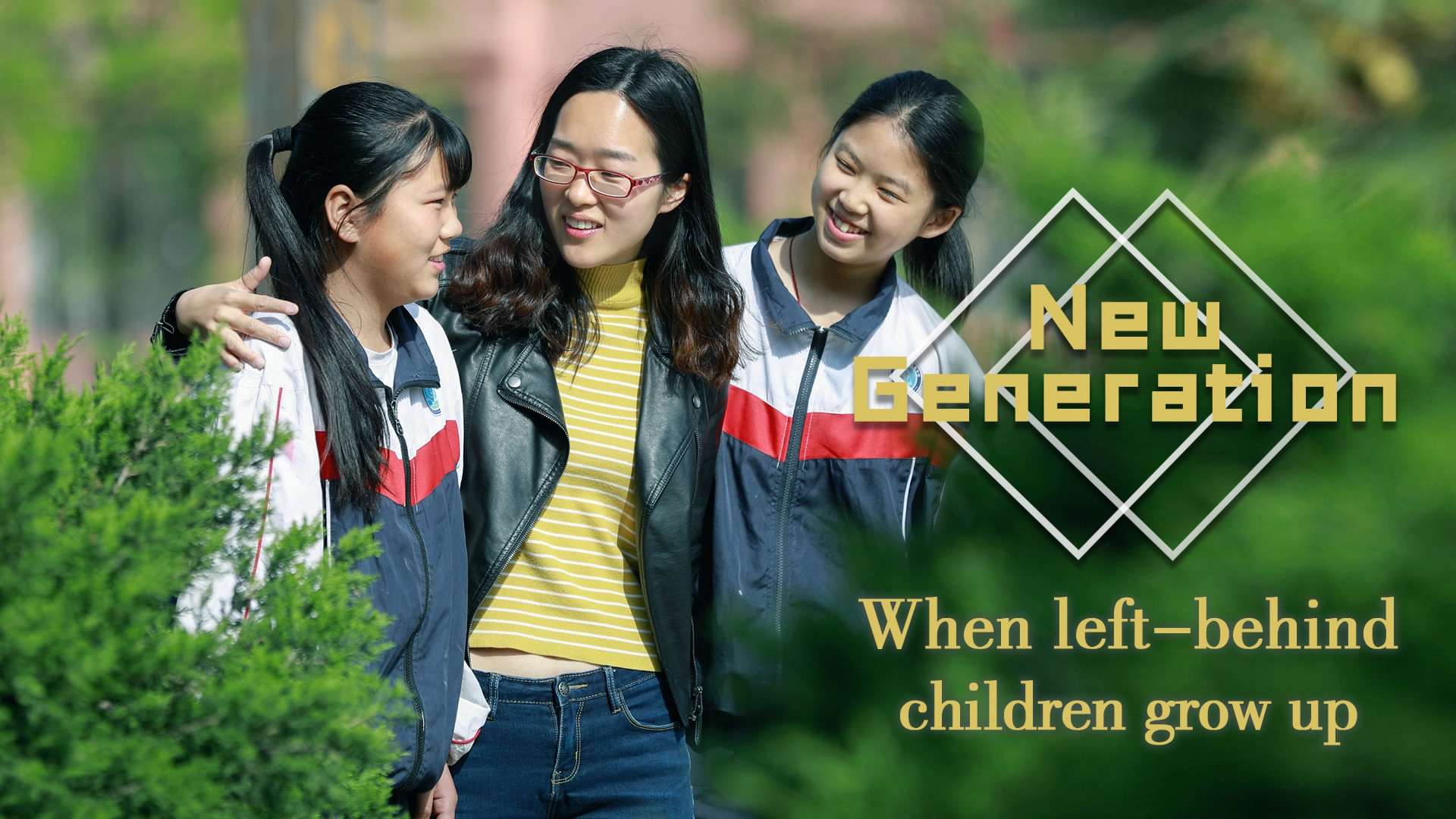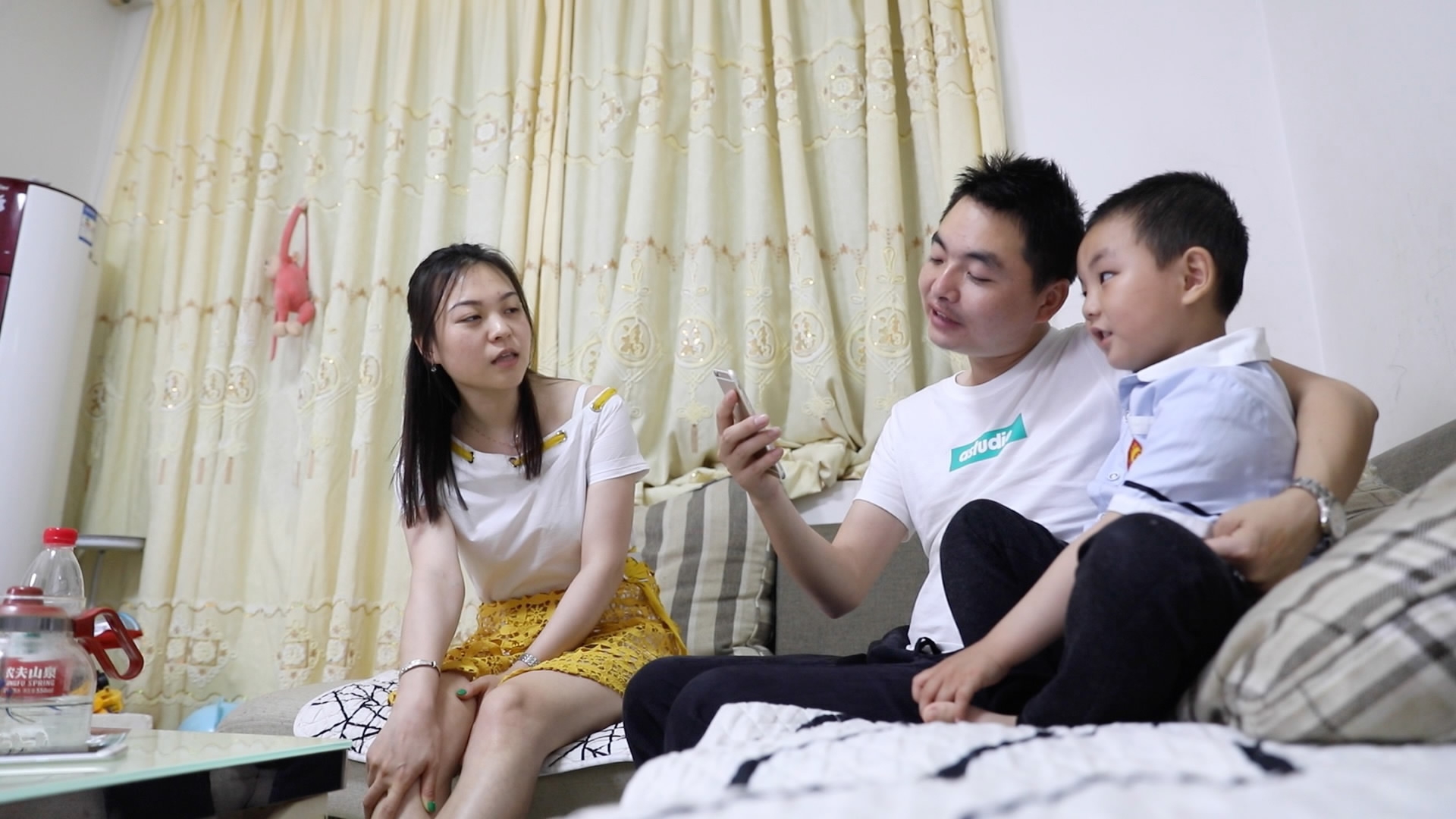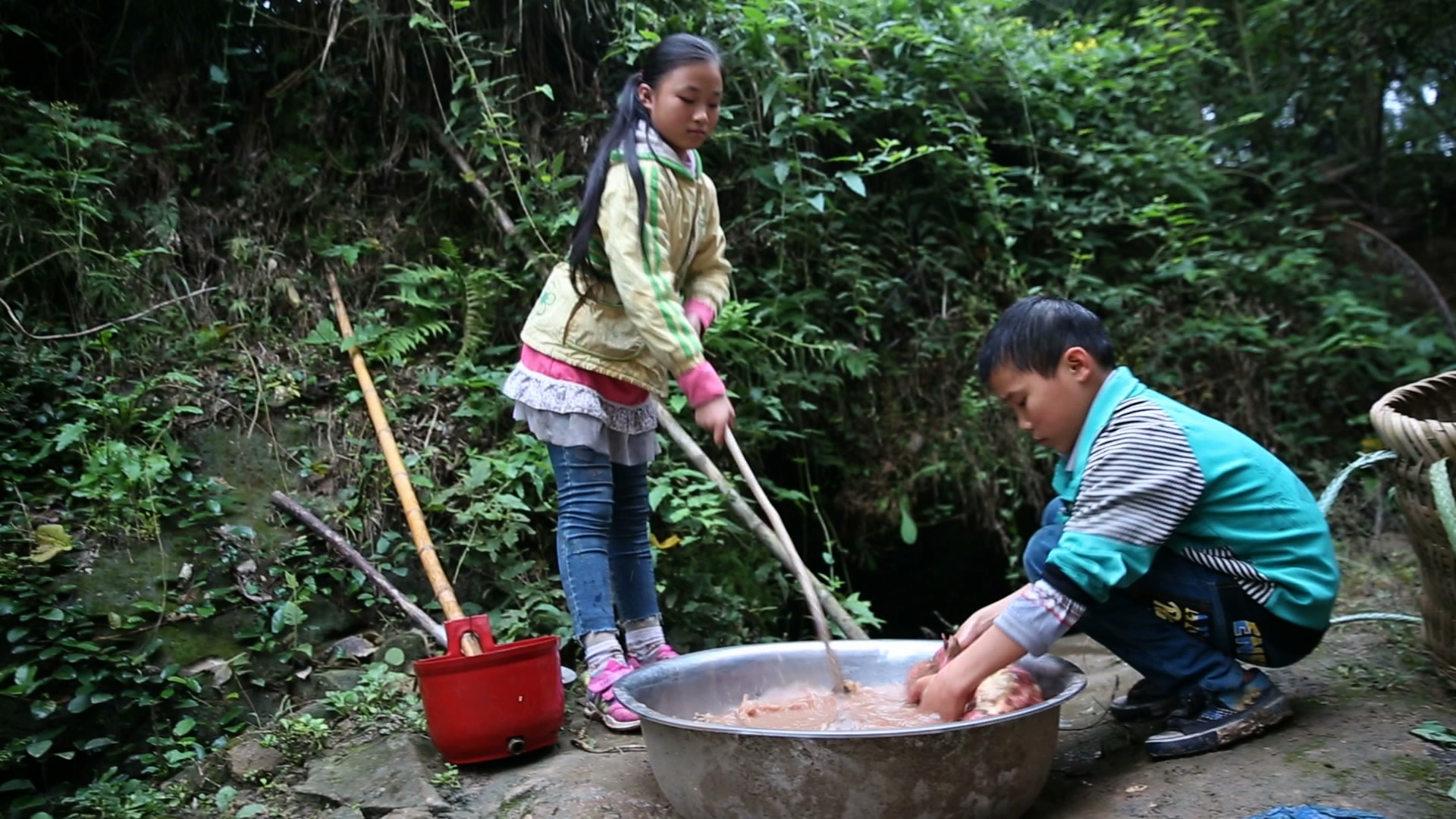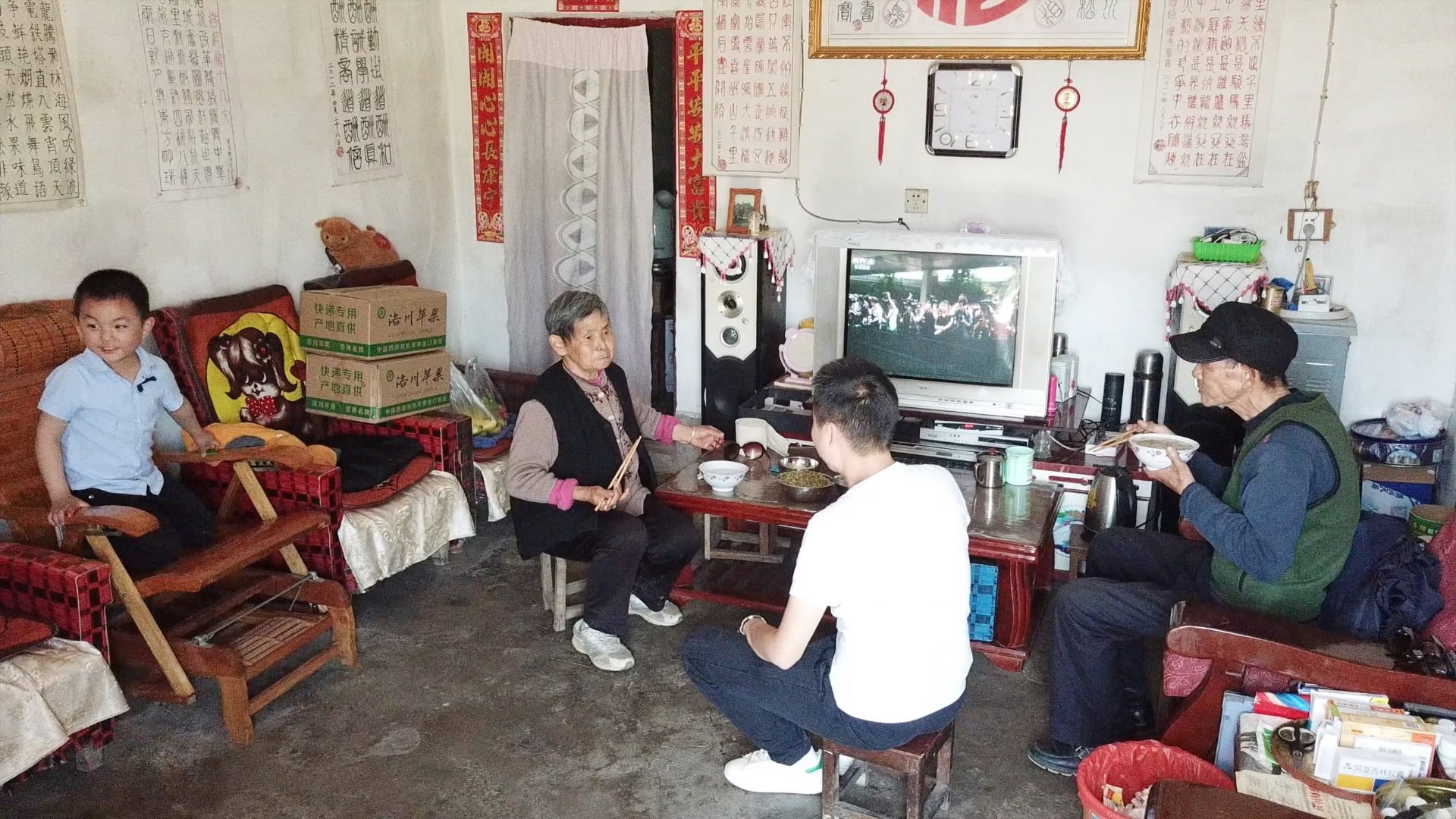
Culture
14:15, 05-May-2018
New Generation: When left-behind children grow up
Tao Yuan
04:03

Pan Shuguang, 29, drives a truck to earn a living. For every truckload of construction materials he transports to a location just a few dozen meters down a twisting alleyway, he gets paid 50 yuan (around eight US dollars).
One can't say it's bad money. Pan works hard and for long hours. Every day, he longs for the moment when he gets off work, drives to the suburbs, walks past a busy pedestrian street to reach an apartment just above a noisy farmers' market.
It’s not an ideal home, but it’s the best he could afford for his family.
His five-year-old son Hongyun always greets him at the door. Pan picks him up and asks "Have you been a good boy today?" For Pan, this is the happiest moment of the day.
"I had a very lonely childhood. I suffered a lot of misery. I don’t want my boy to go through what I went through," he says.

Pan Shuguang (M) and his wife (L) play with their son. /CGTN Photo
Pan Shuguang (M) and his wife (L) play with their son. /CGTN Photo
Pan grew up in a village in southwest China’s Sichuan Province. His grandparents took care of him while his parents worked thousands of miles away in factories or construction sites in big cities like Beijing. Pan recalls they only came home to visit him once a year.
"I remember feeling pain as a child, especially during holidays, when other children’s parents would hang out with them."
Since China began its reform and opening-up four decades ago, it has seen a two-speed growth, with an economic miracle in urban areas and subsistence farming in the countryside. Some 280 million people left their villages in the past three decades looking for a more lucrative work, leaving their young children at home under the care of elderly relatives, or in some cases, to fend for themselves. It’s been the greatest wave of migration in human history. The army of internal migrants may have fueled a rapid economic growth, but it’s taken a heavy toll on the children they left behind.

Two left-behind children do house chores. /CGTN Photo
Two left-behind children do house chores. /CGTN Photo
Many had hoped to keep their children close. But the high cost of living in cities is daunting.
And China’s household registration system, or hukou, means these children cannot attend city schools, or access other social benefits outside their hometowns.
In a humble house in Pan’s home village, his 75-year-old grandmother Huang Chunying recalls memories of the past. Pan had good grades in school, she says, but dropped out after the 10th grade and headed to the city to find work.
"His father sent home money to put him in school," she notes. "But he wanted to start making money. He learned driving and was very good at it. He has great eyes."
It’s a low-end job, but the elderly woman’s eyes sparkle with pride.
"I just wanted to make my contribution to the family," Pan follows, sitting on a stool next to his grandmother.
He was only 16 years old, but shouldered the responsibilities of an adult.

Pan Shuguang (in white shirt) visits his grandparents in the village. /CGTN Photo
Pan Shuguang (in white shirt) visits his grandparents in the village. /CGTN Photo
Pan is not the only one who quits school early. A study conducted by the Chinese Academy of Social Sciences and Stanford University found that between 2007 and 2013, almost half the students in poverty-stricken areas in central and western China left school before grade nine. Those with both parents working elsewhere performed markedly worse at school than those with one parent around.
Growing up without parental care has also been linked to psychological and developmental problems. Anxiety, depression and inferiority complex are believed to be common among children separated from their parents.
And some scars stay.
"I worry a lot about unnecessary things," says Pan, after he put his son to sleep. "I grew up worrying about things a child shouldn’t worry about. Now I can’t help it."
The fact that his son is reaching school age is not helping. Soon he will face pressure enrolling the boy in an elementary school in the city, which will require transferring Hongyun’s hukou to where he now resides.
"I tell myself not to think too much about the future, only now. At least our lives are much better these days, and there’s not much of an economic pressure," he says, putting away Hongyun’s toys.
"And now, I just want to be with my son – the whole family sticking together. I just want him to be happy."
(Video by Zhang Kai, Jiang Zhengfeng also contributed to the report.)

SITEMAP
Copyright © 2018 CGTN. Beijing ICP prepared NO.16065310-3
Copyright © 2018 CGTN. Beijing ICP prepared NO.16065310-3